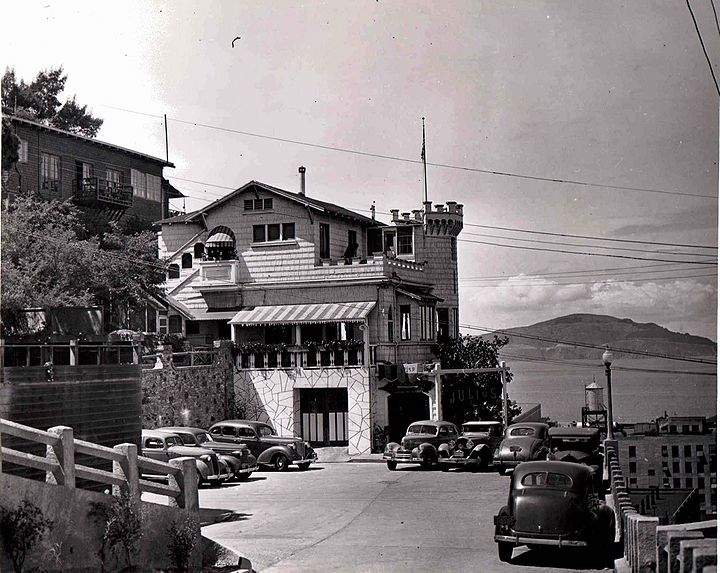Defendant Recovered Less on Cross-Complaint Contractual Claim, So Plaintiffs Prevailed.
Julius Castle Restaurant, Inc. v. Payne, Case Nos. A130955 (1st Dist., Div. 1 June 10, 2013) (partially published; fee discussion not published) may be one of the first published cases discussing post-Riverisland factors for the courts and juries to consider after the overruling of Pendergrass. (Pendergrass was a long-time state supreme court case establishing an oft-used fraud defendant exception to the parol evidence’s fraud exception.) However, the case also has a discussion of whether the lower court decision awarding fees to plaintiffs as prevailing parties could stand up on appeal.
It did.
The dispute involved a historic restaurant property known as “Julius’ Castle” in San Francisco’s Telegraph Hill area. Plaintiffs, well-known restaurateurs, entered into a lease and bulk sales agreement with defendants, parties previously purchasing the property and then closing down a restaurant which was going to be “reinvented” by plaintiffs. Claiming that defendants misrepresented the condition of the property and did not make good on certain repair issues, plaintiffs sued for numerous claims, primarily contractual and fraud based counts, prompting defendants to cross-claim for breach of contract in making certain deductions under the lease/bulk sales agreement. The jury found against plaintiffs on the breach of contract count, but did award damages on the fraud count. Cross-complainants won on their contractual claim, with the jury awarding much less in damages. Both sides brought dueling fee motions, with the lower court denying the defense/cross-complainants’ motion, but awarding plaintiffs $158,180.75 in attorney’s fees based on a lease clause under Civil Code section 1717.
The defense challenge to plaintiffs’ fee recovery was rejected on appeal. The lease contained a broad fees clause applicable to “any action at law or in equity.” This certainly covered plaintiffs’ fraud claim which, among other things, sought to define lease-covered ownership issues in certain personal property. Although defendants won $75,000 on their cross-complaint, plaintiffs obtained much more ($208,500) such that they prevailed, bolstered by the fact defendants only obtained a small portion of the $2.9 million they sought pursuant to the cross-complaint.
Above: Juilius’ Castle in the late 1940s. Link to a historical essay about Julius’ Castle.

